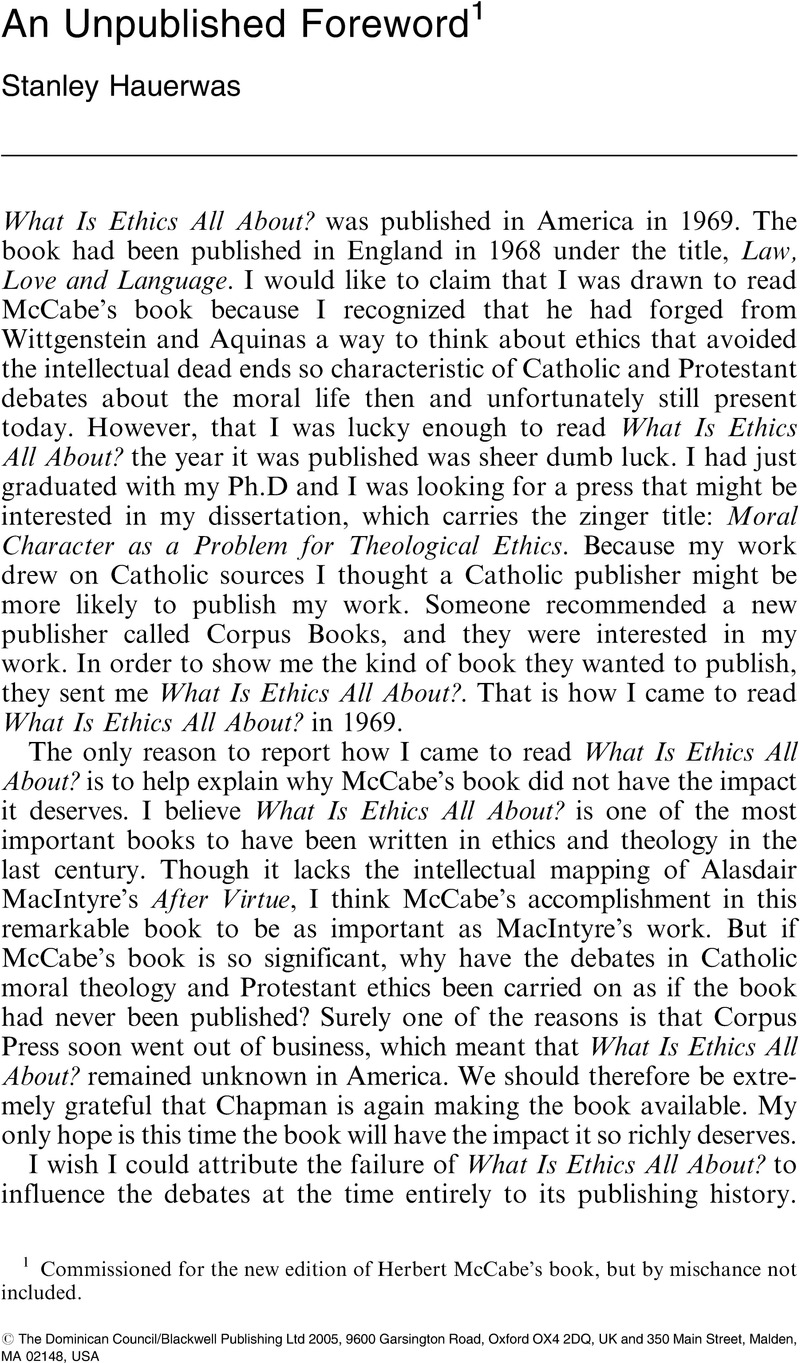Crossref Citations
This article has been cited by the following publications. This list is generated based on data provided by Crossref.
O'Brien, Nick
2009.
Beyond the ‘Awkward Embrace’: Disability Rights, Dialogue and ‘Law, Love and Language’ Revisited.
New Blackfriars,
Vol. 90,
Issue. 1029,
p.
535.
Mayrand, Nicholas
2014.
Herbert McCabe's Genius: Language, Natural Law and Unity.
New Blackfriars,
Vol. 95,
Issue. 1060,
p.
648.
Larsen, Sean
2016.
How I think Hauerwas thinks about theology.
Scottish Journal of Theology,
Vol. 69,
Issue. 1,
p.
20.



